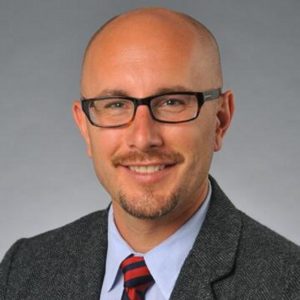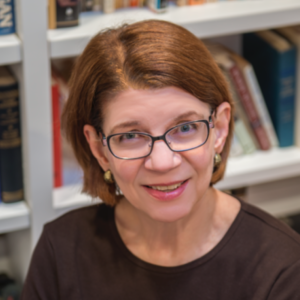Understanding Social Justice
Explore how the idea of social justice is transforming U.S. politics.
Summer 2021
Online Seminar Series
How do ideas shape public policy? How do they interact with interests and institutions to produce policy change? How much can – and should – theoretical abstractions guide the practical and concrete work of politics?
In this online course, led by political scientist Daniel DiSalvo, fellows will examine the influence of ideas in some of our key policy debates – from social class and race to welfare, education, crime and policing, and immigration. Reading will include seminal texts in political science as well as contemporary accounts. In studying major domestic policy issues, fellows will gain insight into our expectations of and dissatisfactions with American government. They will learn how ideas can transform politics, while also appreciating the limits and pitfalls of policy reform.
Image: Patrick Moynihan and Richard Nixon Touring the Redevelopment Area of Pennsylvania Avenue, 1970
Dan DiSalvo on Government Against Itself: Public Union Power and its Consequences

Daniel DiSalvo is a Senior Fellow at the Manhattan Institute’s Center for State and Local Leadership and an Assistant Professor of Political Science at The City College of New York-CUNY. His scholarship focuses on American political parties, elections, labor unions, state government, and public policy.

Daniel DiSalvo is a Senior Fellow at the Manhattan Institute’s Center for State and Local Leadership and an Assistant Professor of Political Science at The City College of New York-CUNY.
His scholarship focuses on American political parties, elections, labor unions, state government, and public policy. He is the author of Government Against Itself: Public Union Power and Its Consequences (Oxford University Press, 2015) and Engines of Change: Party Factions in American Politics, 1868-2010 (Oxford University Press, 2012).
DiSalvo writes frequently for scholarly and popular publications, including National Affairs, City Journal, American Interest, Commentary, The Weekly Standard, Los Angeles Times, New York Daily News, and New York Post. He is coeditor of The Forum: A Journal of Applied Research in Contemporary Politics.
DiSalvo holds a Ph.D. in politics from the University of Virginia.
Session I Readings:
Optional Viewing:
Discussion Questions:
Session II Readings:
Discussion Questions:
Readings:
Discussion Questions:
Readings:
Optional Viewing:
Discussion Questions:
Readings:
Discussion Questions:
Readings:
Discussion Questions:

Daniel DiSalvo
Daniel DiSalvo is a Senior Fellow at the Manhattan Institute’s Center for State and Local Leadership and an Assistant Professor of Political Science at The City College of New York-CUNY. His scholarship focuses on American political parties, elections, labor unions, state government, and public policy.

Martha Bayles
Martha Bayles is a fellow at the Institute for Advanced Studies in Culture at the University of Virginia, and since 2003 she has taught humanities at Boston College. She is currently at work on a monograph on the threats to independent journalism around the world; and a book about the importance of “voluntary restraint” in the American tradition of free speech.

Matthew Continetti
Matthew Continetti is the director of domestic policy studies and the inaugural Patrick and Charlene Neal Chair in American Prosperity at the American Enterprise Institute (AEI), where his work is focused on American political thought and history, with a particular focus on the development of the Republican Party and the American conservative movement in the 20th century.

Adam J. White
Adam J. White is the Laurence H. Silberman Chair in Constitutional Governance and senior fellow at the American Enterprise Institute, where he focuses on the Supreme Court and the administrative state. Concurrently, he codirects the Antonin Scalia Law School’s C. Boyden Gray Center for the Study of the Administrative State.